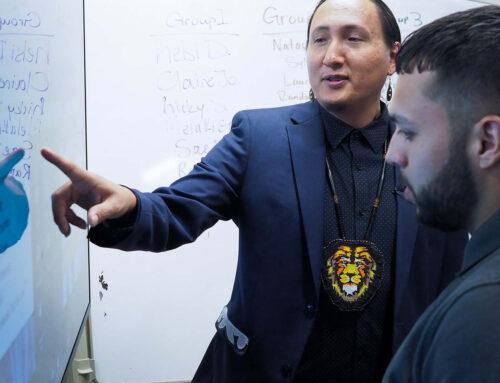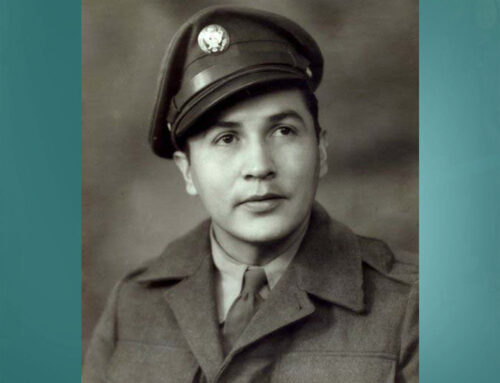Federal ruling on Nebraska tobacco sales victory for tribal sovereignty
OMAHA, Neb. – A Nebraska federal judge ruling the state cannot take revenue from tobacco sales on the Winnebago Reservation is a victory for tribal sovereignty, and ends a lawsuit by Winnebago Tribe-owned companies against Nebraska officials.
“The state’s regulatory overreach has damaged the ability of the Winnebago Tribe and tribes across Indian Country to provide for themselves,” said Nicole Ducheneaux, an attorney representing the companies. “We are pleased the court will not allow state regulation of the Tribe’s lawful business on its own reservation.”
Ho-Chunk, Inc. subsidiaries HCI Distribution and Rock River Manufacturing sued Nebraska public officials in 2018 for colluding with Big Tobacco in laying siege to the Winnebago Tribe’s inherent sovereignty by trying to impose the settlement major cigarette companies had reached with 46 states.
U.S. District Judge John M. Gerrard ruled late last week the state cannot collect revenue from tobacco sales on the Winnebago Reservation under the landmark 1998 Tobacco Master Settlement Agreement, which allocates a percentage of tobacco sales to state governments to offset public health costs related to smoking and imposed other restrictions.
“The Tribe and the state have been making great strides lately in building a relationship,” said Lance Morgan, CEO of Ho-Chunk, Inc. “Ending this controversy is a big step in respecting each other’s sovereignty.”
The ruling ends the case HCI Distribution, Inc. et al. v. Mike Hilgers et al. in the U.S. District Court for the District of Nebraska.
“Tribes were never part of the Master Settlement Agreement between states and Big Tobacco,” Ducheneaux said. “This ruling protects the Winnebago Tribe’s economic and public health interests in regulating its own tobacco sales.”
The tobacco trade has been crucial to Winnebago and many other tribal economies by providing employment and funding programs for education, social and cultural advancement.
The State of Nebraska’s attempts to regulate on-reservation business has caused significant damage to that advancement.
Federal ruling on Nebraska tobacco sales victory for tribal sovereignty
OMAHA, Neb. – A Nebraska federal judge ruling the state cannot take revenue from tobacco sales on the Winnebago Reservation is a victory for tribal sovereignty, and ends a lawsuit by Winnebago Tribe-owned companies against Nebraska officials.
“The state’s regulatory overreach has damaged the ability of the Winnebago Tribe and tribes across Indian Country to provide for themselves,” said Nicole Ducheneaux, an attorney representing the companies. “We are pleased the court will not allow state regulation of the Tribe’s lawful business on its own reservation.”
Ho-Chunk, Inc. subsidiaries HCI Distribution and Rock River Manufacturing sued Nebraska public officials in 2018 for colluding with Big Tobacco in laying siege to the Winnebago Tribe’s inherent sovereignty by trying to impose the settlement major cigarette companies had reached with 46 states.
U.S. District Judge John M. Gerrard ruled late last week the state cannot collect revenue from tobacco sales on the Winnebago Reservation under the landmark 1998 Tobacco Master Settlement Agreement, which allocates a percentage of tobacco sales to state governments to offset public health costs related to smoking and imposed other restrictions.
“The Tribe and the state have been making great strides lately in building a relationship,” said Lance Morgan, CEO of Ho-Chunk, Inc. “Ending this controversy is a big step in respecting each other’s sovereignty.”
The ruling ends the case HCI Distribution, Inc. et al. v. Mike Hilgers et al. in the U.S. District Court for the District of Nebraska.
“Tribes were never part of the Master Settlement Agreement between states and Big Tobacco,” Ducheneaux said. “This ruling protects the Winnebago Tribe’s economic and public health interests in regulating its own tobacco sales.”
The tobacco trade has been crucial to Winnebago and many other tribal economies by providing employment and funding programs for education, social and cultural advancement.
The State of Nebraska’s attempts to regulate on-reservation business has caused significant damage to that advancement.







